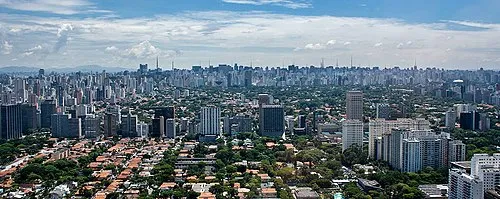
Understanding Constitutionalist Revolution Day: A Tribute to São Paulo's Fight for Democracy
Every year on July 9th, the people of São Paulo come together to commemorate Constitutionalist Revolution Day, a significant event in Brazil's history that highlights the struggle for democracy and constitutional rights.
The Historical Context
The Constitutionalist Revolution, also known as the 1932 Revolution, was a pivotal conflict that took place in Brazil between July and October of 1932. The movement was primarily initiated by the people of São Paulo, who were discontented with the central government’s authoritarian regime established under Getúlio Vargas. The lack of representation and the blatant disregard for the interests of the citizens of São Paulo galvanized diverse sectors of society, including students, professionals, and even the militaries, to demand a constitutional government.
Significance of July 9th
On July 9, 1932, the revolutionaries led an organized uprising against Vargas’s government, which marked the beginning of the conflict. This date is now commemorated as Constitutionalist Revolution Day, serving as a reminder of the sacrifices made by countless individuals in their pursuit of democratic rights and civil liberties. While the revolution did not achieve immediate success, it laid the groundwork for Brazil's future constitutional developments.
Events and Celebrations
In São Paulo, July 9th is marked with various activities that include parades, speeches, and cultural events celebrating the values of democracy, citizenship, and justice. Schools and institutions engage students in educational programs highlighting the historical importance of the revolution. The city also witnesses the participation of numerous social organizations and political parties that advocate for ongoing democratic reforms.
Education and Awareness
One of the key aspects of Constitutionalist Revolution Day is the emphasis on education concerning Brazil's political history. Schools often host lectures and discussions, encouraging students to understand the implications of the 1932 Revolution in contemporary society. This educational focus not only honors past leaders and revolutionaries, but it also fosters critical thinking and encourages active citizenship among the youth.
The Legacy of the Constitutionalist Revolution
The Constitutionalist Revolution serves as a profound lesson in Brazilian history. It illustrates the importance of civic engagement and the power of collective action in advocating for rights and freedoms. It created a framework for future political dialogue and reforms, ultimately contributing to the establishment of more democratic practices in Brazil.
Conclusion
As São Paulo honors Constitutionalist Revolution Day, it is essential to recognize both the historical significance and the continued relevance of the events that unfolded in 1932. The day not only celebrates the fight for democracy but also reminds us of the ongoing struggles for rights in our communities today. Acknowledging this day ensures that the sacrifices made are never forgotten and that the pursuit of justice and democracy remains a vibrant aspect of Brazilian life.






